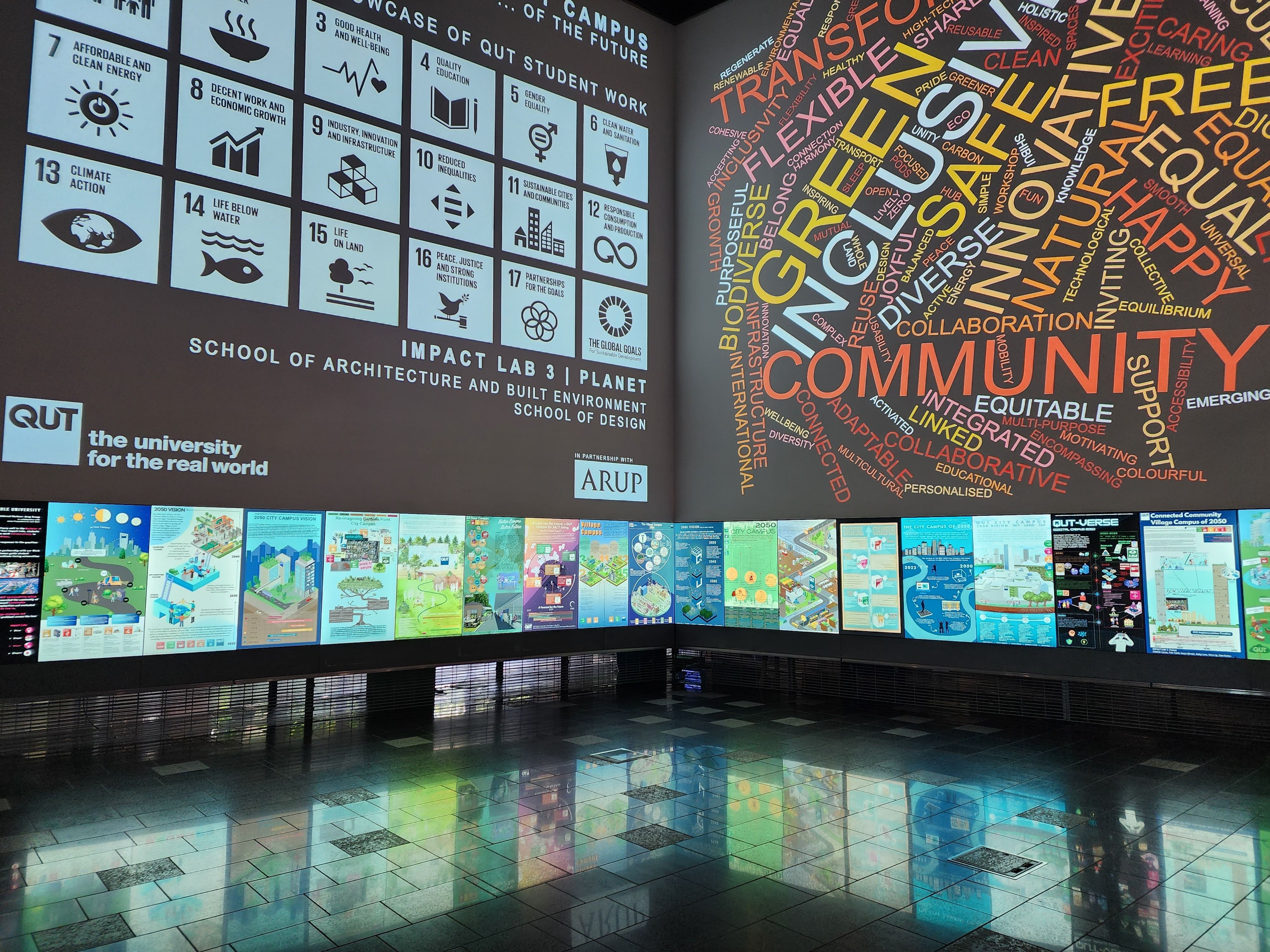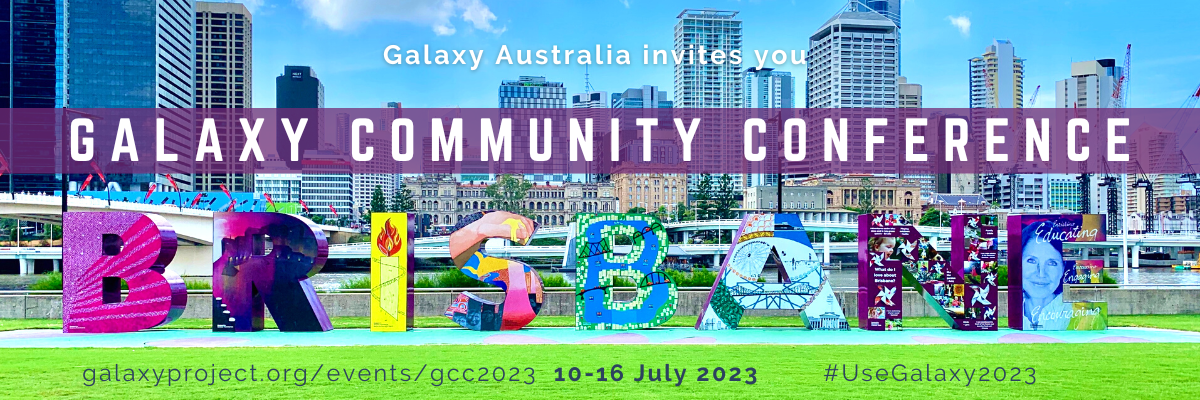Home | Abstracts | CoFest | Conduct | COVID-19 | Fellowships | Key Dates | Organizers | Program | Registration | Sponsors | Travel
GCC2023 Abstracts
Presentations from the community are a core component of Galaxy Community Conferences. These include long talks, short talks, poster presentations, and demo presentations. All of these are submitted by the community and go through a peer review process before being accepted for the program.
Abstract submission deadlines have passed; you can still submit an idea for a BoF.
By submitting an abstract for a short of long talk, you agree that at least one of the authors will register and present the work in-person at GCC2023. Posters or demos can be presented virtually and at least one of the authors must register and be available on Zoom/Slack during their scheduled session.
Key dates relevant to the abstracts
| Date | What |
|---|---|
| Abstract submission opens | |
| Abstracts due for short and long talks (extended from April 3) | |
| Talk reviews returned (extended from April 25) | |
| Abstracts due for posters/demos | |
| Poster/demo acceptance announcements | |
| Deadline for submitting your accepted poster to the organizers | |
| Deadline for submitting slides for your talk to the organizers |
Poster details
Posters at GCC2023 will be presented in a digital format, on large, TV-sized monitors (image below). To accommodate this format, you must use this Powerpoint presentation template to create your poster. Make a copy of the Powerpoint file and build your poster. Once you created the poster, use the poster title as the file name and upload a PNG or JPG version of the file to this Google Drive folder (you will need to sign in using a Google ID). If you have multiple slides, please export those as separate PNG files and save them to a folder.
Complete details about creating a poster from the venue IT are available in this PDF.
Virtual poster presenters
For those that will not attend GCC2023 in person but are presenting a poster, we ask you do the following 2 things to help increase the impact of your poster:
- Upload your poster to the conference Slack (see below)
- Create a ~90 second video where you give a quick overview of the poster
- If you plan on being available during your poster session, set up a virtual meeting link
Please do both of these steps no later than July 9.
To start, please first join the conference Slack. Then join the the #poster-chat channel and upload your poster. Feel free to write a sentence or two describing the poster. Meanwhile, everyone will use this channel for (asynchronous) communication about the posters so please initiate and monitor activity.
For the short video, this is your opportunity to share enthusiasm for your work and give the poster a persona. The video is intended as an overview to capture attention so there is no need (or time) to go into every detail. The goal is to initiate a conversation in Slack after someone has watched your video. So go ahead, practice your elevator pitch and create the video. Once you have it, upload it to Slack (best to do this as a threaded reply with your poster message so they are kept together).
Although not a requirement (timezones can be challenging), if you are available during your scheduled poster session, we encourage you to create a virtual meeting (eg, Zoom, Meet, etc) and post a link in the #poster-chat channel on Slack. Participants can then use this link to connect via their phones and chat to you about your poster.

Demo details
Demos will be held alongside posters. There will be tables available to place your laptop. Beyond that, it is entirely up to you how you organize the demo.
Talk details
Slides for your talk will be projected on a screen in the 16:10 format.
Long talks will be 15 minutes total (including any questions and answers from the audience). Short talks will be 7 minutes total.
Because GCC2023 is a hybrid event with virtual participants, the organizers will need to ensure all the slides for talks are uniformly available for remote attendees. Hence, we ask that you create your slides in Google Slides and share the slide deck with anyone with the link (in view-only mode), and provide a link in this spreadsheet.
Birds of a Feather (BoF) sessions
Birds of a Feather, or BoF, sessions are informal gatherings during GCC that allow participants to discus topics of interest. These are free-form events that are organized by the participants and can take any form you'd like (eg, presentations, brainstorming, architecture drawing, etc.).
Interested in organizing a BoF? Fill out this form with some details so we can add it to the schedule and help advertise. Also, peep an open mind and feel free to propose fun activities as well, such as an evening run or a city tour.
Abstract guidelines
We have several guidelines that will help you craft abstracts (and then presentations) that will resonate with GCC2023 participants.
- Limited to 500 words. Please be concise and to the point. Abstract submission is a web form so no graphics or references are to be included.
- Relevance to Galaxy. Does your work use, describe, extend, deploy, benchmark, etc., some part of the Galaxy ecosystem? If it does not, then it may not reviewed.
- Compelling. Is the work compelling? Will GCC2023 participants find your presentation interesting? Does the abstract describe novel work, interesting results, improvements, lessons learned, and so on.
- Open Source / Open Access. Not all presented work / resources must be open source / open access, but if it isn't, then you need a compelling reason why it isn't. For example, if you have implemented Galaxy in a company, behind a firewall, then your presentation should focus on the lessons you learned, and any contributions that were made back into the ecosystem. An abstract that merely highlights an inaccessible resource is not compelling.
- Project Update. If an abstract is a project update for a project that has previously been presented at a GCC, then it needs to describe a significant update to be considered for a talk. Minor updates submitted as talks will be offered a poster or demo spot.
Option to publish in F1000 Galaxy gateway
Following GCC2023, you'll have an option to publish your slides or poster in the F1000 Galaxy gateway. Besides being a great collection of Galaxy-related content, each published artifact gets a DOI, making it easier to reference in the future.
Questions?
Got questions about abstracts, abstract submission, or BoFs? Ask the Scientific Program Committee.
